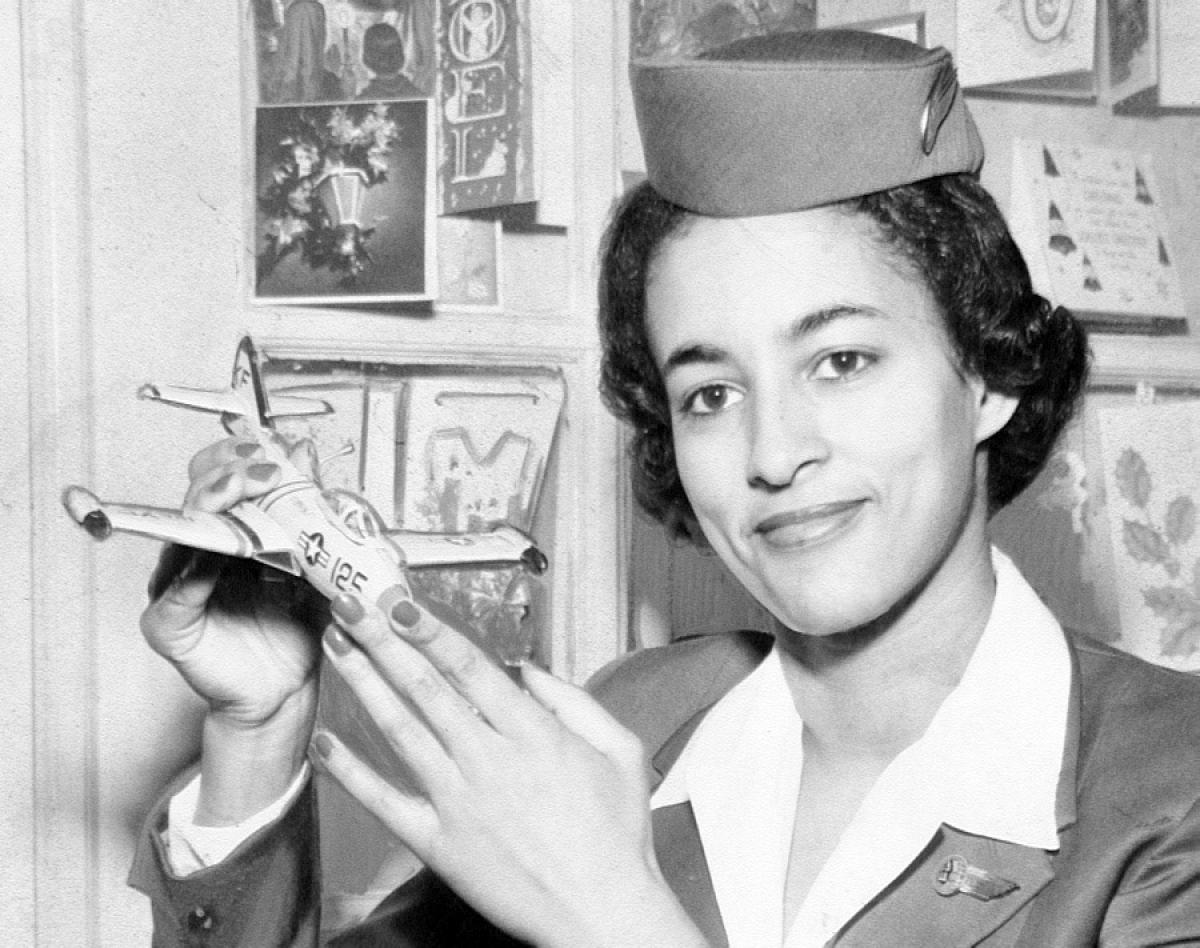Meet America’s first black flight attendant who was forced to resign over a marriage ban. When the civil rights movement began in the 1950s, African Americans struggled to achieve civil rights equal to those of whites, including equal opportunity in housing, education, and employment.
During this period, most significant positions in major job sectors were handled by whites and the airline industry was no exception.
A few black employees who were working for the major U.S. carriers were in service positions while the pronounced roles – pilots and flight attendants – were white.
This discriminatory practice continued until February 11, 1958, when Ruth Carol Taylor broke the colour barrier to become the first African American airline flight attendant. But a marriage ban by authorities will cut short this move.

Born in Boston, Massachusetts on December 27, 1931, to a nurse and a barber, Taylor and her family moved to a farm in upstate New York when she was young. She attended Elmira College in New York and graduated from the Bellevue School of Nursing in New York City as a registered nurse.
Taylor worked for several years as a nurse before deciding to break the colour barrier that existed in the career of airline stewardesses (now called flight attendants)
She first applied for a stewardess position at a major U.S. carrier – Trans World Airline (TWA) – but her application was rejected. This forced her to file a complaint against the company with the New York State Commission on discrimination
At that same time, a regional carrier – Mohawk Airlines – announced its interest in hiring minority flight attendants. Taylor applied for the position though she later believed that the move by the New York-based airline was to gain worldwide publicity
Out of 800 black applicants, Taylor was picked and was hired in December 1957. Taylor suspected that the fact that she was “near-white enough with aquiline features, so-called” and had “answered the questions about race in the way I knew they wanted them answered” moved hers to the top of the pile of 800 applications, said the Black Christian News Network.
On February 11, 1958, she became the first African American flight attendant on a flight from Ithaca to New York City. Her aviation history was not without restrictions, as she was never asked to join the rest of the crew for meals.
Another discriminatory barrier cut short her role at the airline – a marriage ban. Six months after joining Mohawk, Taylor married Rex Legall and was forced to resign from her job due to restrictions that flight attendants remain single.
Taylor later became an active participant in the civil rights movement.
She spoke, wrote commentaries for local black-owned newspapers, and attended several demonstrations against police brutality and other injustices, even shaving her head once to emphasize her protest, said the Oxford African American Studies Centre.
Taylor spent about five years in Trinidad, London, and New York City during which she covered the 1963 March on Washington for Flamingo, a British magazine.
The registered nurse and journalist moved to Barbados in 1964, where she founded the country’s first professional nursing journal and fought for consumer rights and women’s rights.
In 1977, she returned to New York to resume her work as a nurse and co-founded the Institute for Inter-Racial Harmony, which developed a test to measure racist attitudes known as the Racism/Colourism Quotient
In 1985, she wrote The Little Black Book: Black Male Survival in America, a survival guide to help young black men succeed in a racist society, reports Blackpast.org.
Fifty years after Taylor’s historic flight that paved the way for other black people to be added to flight crews, her achievements were formally recognized in 2008 by the New York State Assembly.

Calling herself a “blacktivist,” Taylor said in a 1997 interview with Jet Magazine that she had no long-term career aspirations as a flight attendant but only wanted to break the colour barrier.
Today, thanks to Taylor and many other black personalities who fought for influential roles in the aviation industry, black women are not only training as flight attendants but have pushed into piloting that was hitherto left for men.










